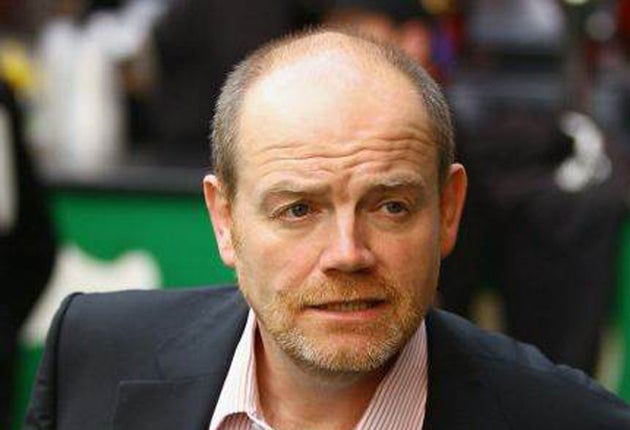BBC stars will have to cross picket line at Tory congress

BBC staff are preparing to mount picket lines outside the entrance to the Conservative Party conference in Birmingham as part of strike action which is set to begin next Tuesday.
Union members are particularly determined to dissuade star presenters from working at the conference, after 32 of the Corporation's political journalists including Jeremy Paxman, Huw Edwards, James Naughtie and Martha Kearney wrote a joint letter in which they complained that the strike threatened to undermine the BBC's reputation for fairness.
"Impartiality is the watchword for the BBC's political coverage and we would not wish to give a misleading impression that this is no longer something that we value highly," said the letter to the National Union of Journalists. "We are clear that the choice of strike dates is counterproductive."
The letter caused outrage among less well-paid members of the BBC staff who are furious at proposals to change the Corporation's pension scheme, which faces a major deficit. Union sources said that some members were "unrestrainable" following the letter, which was also signed by Nick Robinson, the BBC political editor, and Emily Maitlis.
Gerry Morrissey, general secretary of the broadcasting union Bectu, whose members are especially militant in their response to the pension changes, said: "We are not going to be dictated to by people who in many cases are not even in the pension scheme and who are high-earners, stopping us defending the pensions of our members."
Paxman and Kearney are among high-profile BBC journalists who have crossed picket lines during previous BBC strikes. George Alagiah, Fiona Bruce and John Humphrys – none of whom signed the letter – are among those who have previously supported strikers.
Feeling is running higher than at past actions and sources said that every attempt would be made to ensure that the Conservative conference is not covered by setting up a picket line outside the Hyatt Hotel in Birmingham.
The NUJ is confident that if the strike goes ahead, key BBC programmes such as Radio 4's Today programme and BBC2's Newsnight will not be broadcast. Coverage of the Commonwealth Games in India will also be disrupted. A further round of industrial action will coincide with the Government announcing details of its spending review later this month.
Jeremy Dear, general secretary of the National Union of Journalists, said: "In the absence of a new offer from the BBC, I expect the strike to go ahead and more than 10,000 staff to walk out."
In an effort to placate the anger of his staff, the BBC director general Mark Thompson announced that he would forgo top-up payments to his own pension that reduced his remuneration, which once stood at £838,000, to £619,000. "We have decided to stop the payment of pension supplements to executives, I think it is the right thing to do," he said. "It is very important that there is one set of schemes and choice within the BBC. So for some directors this means very substantial reductions in the amount of remuneration they get." Mr Thompson complained about the timing of the strikes, saying that there was not "an unbridgeable gap" between the position of the management and the unions, a view that union sources confirmed.
Unions believe that some of the signatories of the letter will nonetheless support industrial action if it takes place. Last night Paul Mason, the economics editor of Newsnight, who did not sign the letter, said he did not agree that the timing of the planned strikes was politically motivated. "If the strike goes ahead on Tuesday, I for one will be going on strike," he said. "I don't see it as in any way politically targeted. It's simply that we want our action to be as effective as possible and for it to be over as quickly as possible."
Join our commenting forum
Join thought-provoking conversations, follow other Independent readers and see their replies
Comments
Bookmark popover
Removed from bookmarks